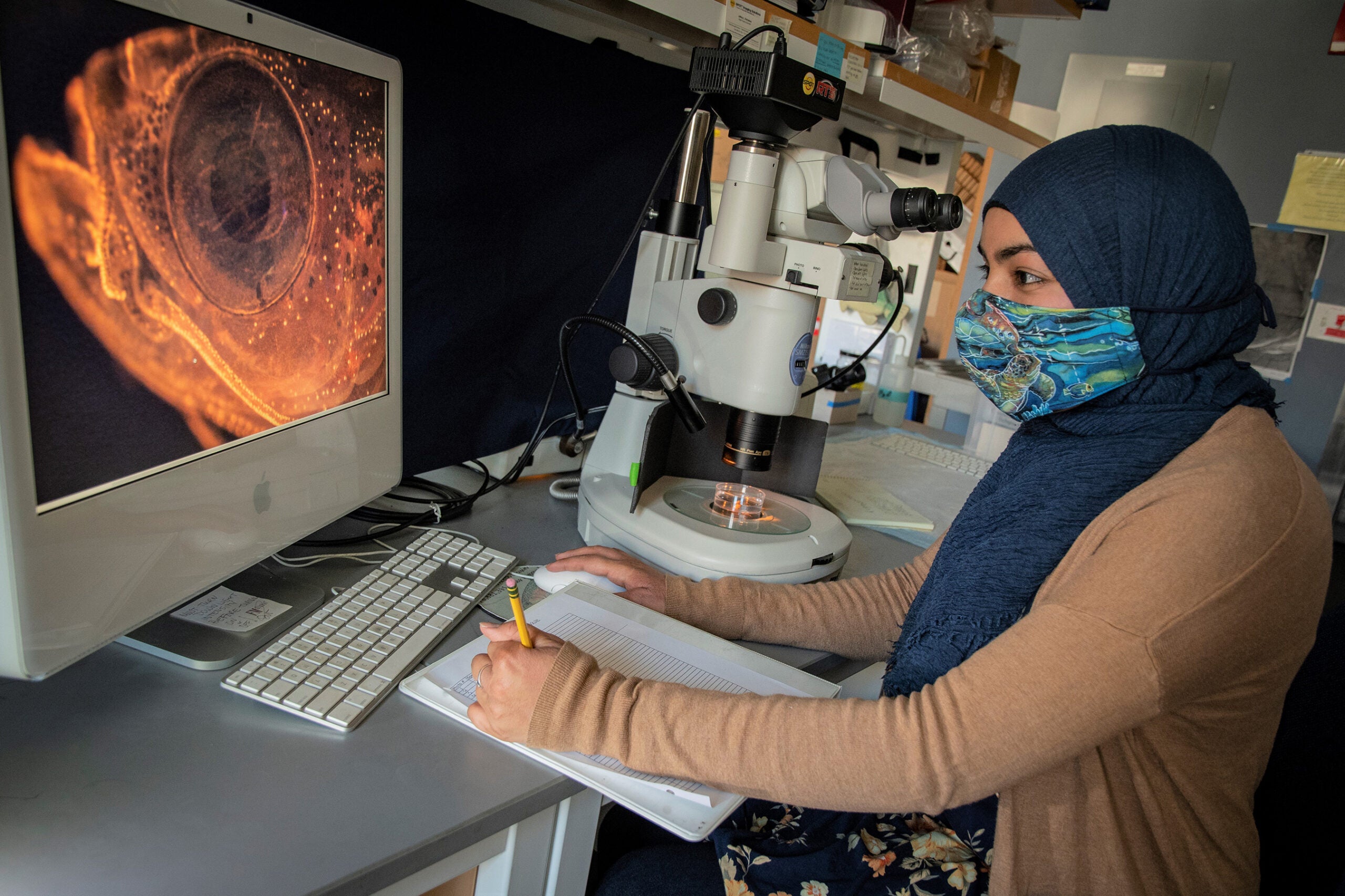KINGSTON, R.I. – April 13, 2021 – As a homeschooled student from kindergarten through grade 12 in the Boston, Dallas and Atlanta areas, Eman Khwaja felt empowered to invest in her education outside of traditional classrooms. Programs and volunteer work at zoos, aquariums, nature centers and other outdoor venues were key elements of her education, and they helped the University of Rhode Island graduate student decide to pursue a career studying marine biology and animal behavior.
“My goal has been to become a marine biologist since I was 5 years old,” said Khwaja, who completed high school two years early and earned a bachelor’s degree in neuroscience at Agnes Scott College in Georgia. She now lives in Randolph, Massachusetts. “I discovered I was really interested in behavior, which is why I studied neuroscience, and now I’m applying that knowledge to the behavior of fishes.”
Khwaja’s education and research just received a significant boost from a prestigious fellowship from the National Science Foundation that will fund three years of her graduate studies and provide a $34,000 annual stipend.
“I really didn’t believe I had gotten it at first,” she said. “I experienced a lot of emotions when I got the word. For a week afterwards, I kept going back to my email to double check that I didn’t imagine it.”
Part of her emotional response was gratitude to her parents, she said, for homeschooling her and providing the skills that she needed to be awarded the fellowship.
“They helped me realize that being a Muslim woman of color was not a barrier to my goal of becoming a marine biologist,” she said. “They also encouraged me to recognize the value of my education and empowered me to take ownership of my education, and for that I’m full of gratitude.”
Khwaja’s research for her master’s degree focuses on the lateral line system of fishes, a sensory system that detects water flows that helps fishes find food, avoid predators and engage in schooling behavior. Working with Marine Biology Professor Jacqueline Webb, she is examining how some of the sensory organs on the head and bodies of the fishes – called superficial neuromasts – are organized in various groups of fishes.
“I’m trying to learn about the organization of superficial neuromasts to better understand how they evolved and how they function in fish behavior,” she said.
Khwaja is using several imaging techniques to study the pattern of the neuromasts on tetras, a family of fishes in the Amazon. She will also conduct behavioral studies of these fishes in her URI lab.
“Information like this helps us understand a lot about the behaviors we see in the wild, and it gives us more information about the environment where they live, especially the Amazon, which is important to conservation,” she said. “The lateral line system is also of interest to engineering companies, who may be able to learn from my research.”
Upon completion of her master’s degree, Khwaja anticipates pursuing a doctorate to apply what she learns at URI to marine conservation. She eventually plans to continue her research at a government agency or nonprofit conservation organization.
In addition to Khwaja, URI alumna Cassandra Chartier was awarded the NSF graduate fellowship to study chemistry at Columbia University. Three other URI graduate students – Katherine Roche, Samantha Schofield and Anna Schrecengost – received honorable mention.
Since 1952, the National Science Foundation has funded more than 50,000 graduate research fellowships out of more than 500,000 applicants. Forty-two fellows have gone on to become Nobel laureates.

